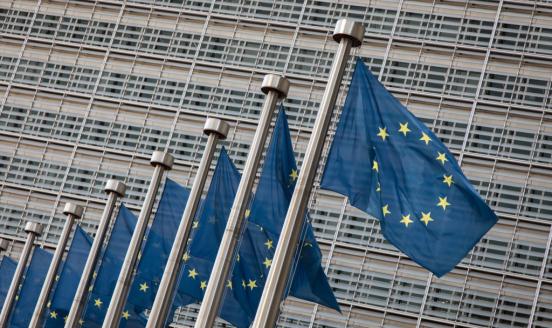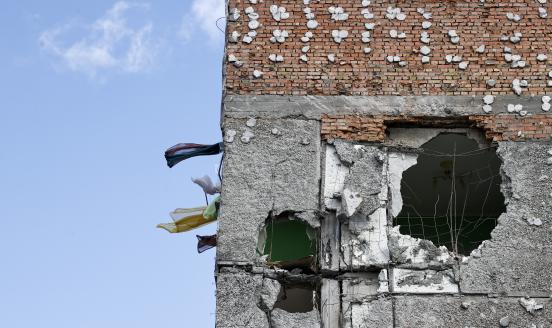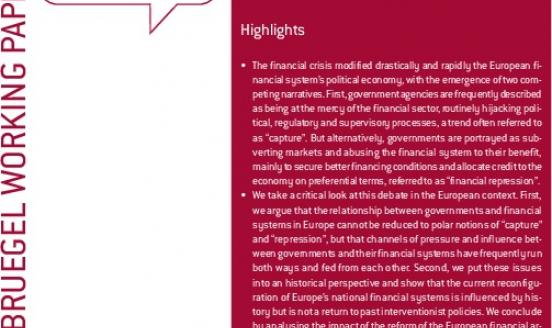The Weekender
Dear All,
I’m writing these lines from Paris after a few days in Naples where I participated in a conference on the future of the Arab Spring.
There are important debates to follow both in the world economy and on the geopolitical front. On this note, the meeting between PM Netanyahu and a suddenly more Hawkish President Obama on Monday is important to follow. It could, somewhat paradoxically, reduce the risks of a unilateral Israeli strike and therefore take away some risk premium from energy markets.
I will focus on:
1. The Target 2 debate and the Bundesbank
2. The aftermath of the Arab Spring
1. Target 2 debate and the Bundesbank
Until recently, the debate about balances between National Central Banks (NCBs) in the eurosystem was limited to experts and central banking geeks. Jeremie Cohen-Setton and myself had covered it this summer in one blog review that is still a good background document on the matter (as well as this post by Silvia Merler).
But as Jean Pisani-Ferry explained, the debate has profoundly changed last week with the suggestion that the Bundesbank had written a letter to the ECB asking a return to stricter collateral rules and expressing concerns over the rise of Target 2 balances.
I previously questioned the willingness of the ECB to do any and everything necessary to preserve the integrity of the euro area. Limitations of target 2 balances would inevitably precipitate a discussion about euro exit or at least about a dual currency regime as Harold James and others seem to consider as the smoothest way to organize a devaluation within a monetary union.
That being said, this target 2 debate raises important questions.
i. First, it is true that these balances help to limit real sudden stops by effectively allowing the NCB of a country in difficulty to continue to refinance its banking sector by drawing on the eurosystem and increasingly so with ELA and the LTRO’s softer collateral rules. This allows slower current account adjustments.
ii. The implicit transfer associated with the financing of the external imbalance (Current Account or capital account) is de facto larger in a set up that limits fiscal transfers. In the eyes of the Bundesbank, the target 2 system in fact allows to hide some form of fiscal transfers from political and democratic oversight, a clear case of fiscal dominance.
iii. Finally and related to point (ii), this system (along with softening of the collateral requirement) also forces the ECB to take on more credit risk albeit fairly contingent (on EMU break up) but credit risk still.
One has to interpret Weidmann’s letter along all these three dimensions because the Bundesbank knows very well that Target 2 balances are economically natural in a monetary union (see the Bundesbank’s own Monthly Bulletin on the matter). Hence, the intent of this letter is not to debate the technical aspects but it is eminently political.
On point (i) the Bundesbank clearly wants to flag how much transfers a monetary union require. By deciding to raise its hand on the target 2 balances, the Bundesbank will inevitably start a debate about all the underlying transfers involved with a monetary union. This is an important debate to have indeed and it is probably right for the eurosystem to flag to the public and to policymakers that monetary unions do involve large transfers. But this debate cuts both ways: it can either precipitate a rejection of the monetary union or accelerate the creation of a framework at the European level that facilitates fiscal transfers and therefore reduces monetary transfers.
This leads to point (ii) and (iii) and the fact that the Bundesbank is also realizing that although it is only taking “contingent” risk, it is taking a growing amount of credit risk. As it steps further into “fiscal dominance”, Weidmann’s letter should also be read as a warning shot to governments that there is only so far the ECB can go. This is basically another of these calls upon governments to live up to their responsibilities.
Finally, (and this is a point I’m borrowing from Bernard Connolly), Weidmann is very (partly because of his time at the Chancellery) aware of the possible future legal and constitutional challenges to the current financial assistance framework. Indeed, in the context of a future ESM challenges before the Courts, hypothetical plaintiffs (Hans-Werner Sinn for instance) could be raising the point that there were hidden transfers that create a risk to German tax-payers without the explicit consent of the Bundestag.
In essence, the Weidmann letter is consciously and publicly trying to convince in advance the Karlsruhe Constitutional Court that the ELA, the LTRO and the resulting target 2 balances are really limited in scope, time and that they are not permanent mechanisms that would require substantially more political oversight.
This leads me to a final point, which I think is the most important take away of last week’s eurogroup meeting. Draghi would have confirmed to the eurogroup that there wouldn’t be no more such LTRO. A gesture that should pacify the governing council and respond favorably to the Bundesbank’s letter.
2. Arab Spring
I took part in a very interesting conference organized by the German Marshall Fund last week attended by a few senior representatives of international financial institutions, former diplomats and politicians from a few countries in North Africa. I came back more concerned than I was in the first place.
There is a growing diplomatic and political vacuum surrounding key aspects of the political and economic transition in this region.
On one hand, Europe seems completely self-absorbed by its own crisis and therefore largely ignores what is happening on the other side of the Mediterranean sea while it could open a new area of cooperation, address some of its long term challenges (ageing…) and help launch a future important trading partner.
On the other hand, the US adopts a more distant policy of leading from behind and is unlikely to do anything bold before the elections next year. In addition, and maybe more fundamentally, one shouldn’t underestimate the degree to which US energy dependency is changing. Better production in the Gulf of Mexico, in Alaska and more important natural gas in South Dakota contribute to bring the US on track to energy self sufficiency in the next 5 to 10 years. The US’ interest in the region could therefore decline meaningfully.
All in all, this international context is such that there is a total absence of political and economic anchor following the Arab Spring and that these transitions are largely left adrift following the tumultuous current of their idiosyncratic political dynamics. This is a dangerous state of affairs and in this context, the well meaning international financial institutions that want to provide financing will most probably under-deliver and fail to address the economic frustrations that are at least partially at the root of these uprisings.
It is urgent that Europe wakes up to the urgency of the situation and that it lays out a vision for its relations with this region in the next 20 years. It is likely to be left alone without the US to formulate this. It is unlikely to be anything close to EU membership but there are a number of other important pillars that could contribute to regional stability and advancement.
All Mediterranean countries could for instance, over time, become full members of the Council of Europe. This would set in motion important political changes, democratization and enshrine a new relation with the rule of law. One shouldn’t underestimate the degree to which Turkey’s membership has contributed to open its society. From the economic standpoint, it is paradoxically what would be the most useful for the region’s development that seems the hardest for Europeans. A customs union for agricultural goods could be very beneficial to the region. Eventually, after economic, social and environmental reforms, the region should be granted a form of access to the single market. The combination of these two objectives (political and economic) could be very powerful to ground the transition process in the region.
Short of that, local politics and a difficult economic climate could leave the region in chaotic and endless political transition. There is unfortunately no more time to be taking time, in the next few months, in the absence of determined action, Tunisia and Egypt will most likely experience a proper Balance of Payment of crisis. An IMF program, as much as it might be necessary is not an intelligent transitional device. The EU owes something better to this region, and to itself.
I will be looking at the fiscal compact in more details next week. I think we should start to live with the idea that this fiscal compact could face serious ratification challenges (in Ireland, but also maybe in France…). This could be an opportunity to negotiate a better treaty but it could also be a very disruptive political moment for Europe.


